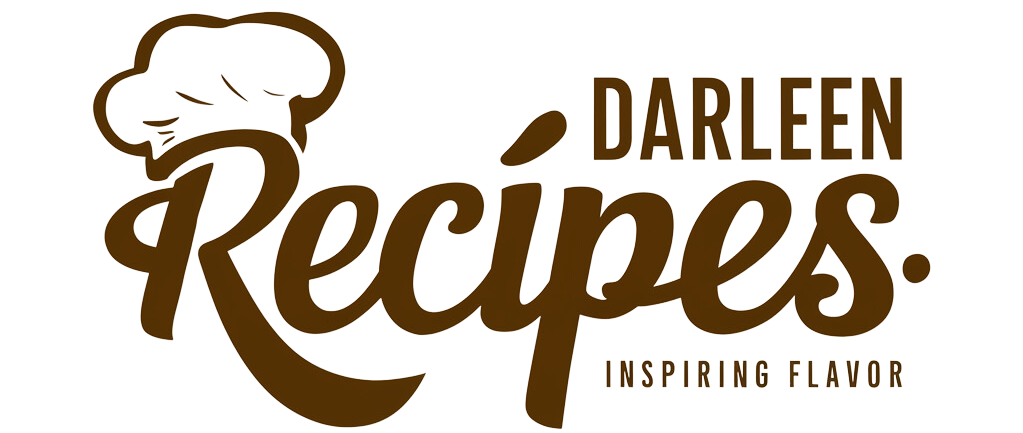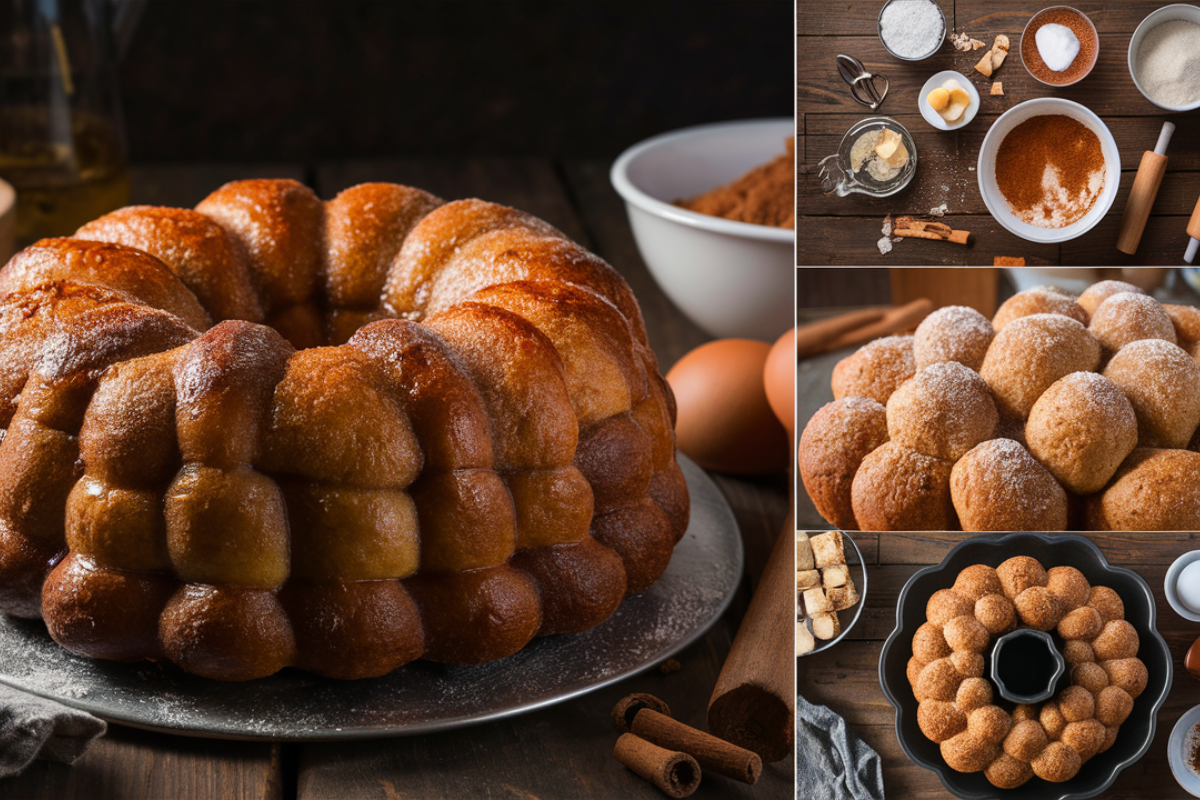Monkey Bread in Popular Culture
Monkey bread has become deeply ingrained in American popular culture as a deliciously nostalgic comfort food. In the 1950s and 60s, it appeared in numerous cookbooks and homemaking magazines, promoting it as a versatile treat perfect for breakfast or dessert. Its rise to fame was cemented when First Lady Nancy Reagan served it at the White House during Christmas, giving the treat a presidential seal of approval.
Monkey bread has since made its way into various media, appearing on cooking shows and in lifestyle publications. It remains a beloved breakfast and dessert staple at gatherings, often linked with childhood memories of communal dining and family bonding. Its pull-apart quality makes it ideal for holiday breakfasts, brunches, and special occasions where sharing is key.
In modern times, creative food bloggers and chefs have reinvented it in numerous ways, leading to endless variations that appeal to different tastes and preferences. Some have introduced savory versions incorporating garlic and cheese, while others have turned it into decadent desserts with chocolate or fruit fillings. These innovative approaches ensure monkey bread’s appeal endures, maintaining its status as a versatile, crowd-pleasing dish.
Monkey bread continues to captivate hearts and taste buds alike, striking a balance between indulgence and nostalgia. It’s this combination that keeps people coming back to the warm embrace of sticky dough balls coated in butter and cinnamon, offering a treat that’s as fun to make as it is to eat.
How to Make Monkey Bread
Classic Monkey Bread Recipe
The classic monkey bread recipe starts with simple buttermilk biscuit dough. Divide the dough into small pieces and roll each into a ball. Dip each ball in melted butter, then coat it in a blend of cinnamon and sugar. Stack these sweet treats in a Bundt pan, and pour any remaining butter and sugar mixture over the top before baking.
In the oven, the caramelized sugar and butter transform the dough balls into a gooey, sticky bun-like bread, perfect for sharing. Bake until golden-brown, then invert the Bundt pan onto a serving plate to reveal an irresistible mound of pull-apart pieces. Here’s a quick step-by-step guide:
- Ingredients:
- Buttermilk biscuit dough (store-bought or homemade)
- Melted butter
- Cinnamon and sugar mixture
- Instructions:
- Preheat your oven and grease a Bundt pan.
- Roll the dough into small balls, dip them in melted butter, and coat them with the cinnamon and sugar mix.
- Layer the balls in the Bundt pan, pouring any remaining butter and sugar over them.
- Bake until the dough is fully cooked and golden brown.
- Let it cool slightly, then invert it onto a plate to serve.
Variations
- Savory Versions:
- Swap the sugar for garlic and herbs to create a savory, pull-apart garlic bread that’s perfect for dinner parties or as a side for soups and salads.
- Add cheese, jalapenos, or spices for a fun twist, giving it a kick of heat or extra layers of flavor.
- Sweet Versions:
- Add chocolate chips or caramel bits for an extra indulgent version.
- Drizzle with icing or melted chocolate for a decadent dessert bread.
These variations offer a versatile range of flavors, showing just how adaptable monkey bread can be to different tastes and occasions.
How to Serve Monkey Bread in Unique Ways
Make-Your-Own Topping Bar
Create a “make-your-own” topping bar where guests can personalize their pull-apart bread pieces. Provide various toppings like melted chocolate, caramel sauce, fruit compote, whipped cream, or even savory spreads like garlic butter or cheese sauce.
Pairing Suggestions
Pair monkey bread with complementary beverages and sides for a well-rounded treat. Serve it with fresh fruit, yogurt, or hot beverages like coffee or tea to balance the rich sweetness. For savory versions, consider pairing it with soup or salad.
Mini Monkey Bread
Bake smaller portions using muffin tins for individual servings, perfect for kids’ parties or portion-controlled desserts. This version is great for serving at potlucks or buffet-style events.
Festive Decor
Customize the presentation to match the season or event. For holidays, sprinkle red and green sugar or drizzle it with icing and edible glitter. Add a decorative centerpiece around the Bundt pan to make it the focal point of your dessert table.
With these serving suggestions, your guests will be delighted by the creative possibilities that transform this comfort food into a fun and interactive treat!
Making Monkey Bread Healthier
Whole Wheat Dough
One way to make monkey bread healthier is to substitute the traditional white flour dough with whole wheat flour. Whole wheat flour contains more fiber and nutrients than refined white flour. It adds a nutty flavor that complements the buttery, sweet nature of monkey bread. The whole wheat dough retains the same pull-apart quality that makes this treat so much fun to eat while adding a boost of vitamins and minerals.
Natural Sweeteners
Replacing refined sugar with natural sweeteners like honey, maple syrup, or coconut sugar is another effective strategy. These options provide a rich, nuanced flavor while offering a lower glycemic index. Honey, for example, adds floral undertones to the caramel coating. Coconut sugar contains trace minerals like potassium and magnesium, making it a more nutrient-dense alternative to regular sugar. Additionally, using these sweeteners in place of refined sugar reduces the overall calorie count.
Healthy Add-ins
Incorporating healthy add-ins like fruits and nuts not only improves the flavor but also enhances the nutritional value. Fresh fruits like apples, pears, or berries can naturally sweeten the bread while adding vitamins and antioxidants. Diced apples can bring extra crunch, while berries lend a burst of flavor. Nuts like pecans, walnuts, or almonds introduce healthy fats and protein. Pecans, with their buttery texture, work particularly well in the caramel coating.
Reduced Fat
Another way to reduce the calorie count is by replacing some of the butter with Greek yogurt or applesauce. Greek yogurt contains protein and probiotics while keeping the bread moist and fluffy. Applesauce acts as a fat replacer, providing natural sweetness and reducing the amount of butter required.
By thoughtfully adjusting the ingredients, you can enjoy a version of monkey bread that’s both satisfying and more nutritious without losing the sticky, gooey goodness that makes it so beloved. For those seeking a healthier alternative to traditional pull-apart breads like monkey bread, it’s essential to understand the benefits of various bread options. While monkey bread is deliciously indulgent, it’s possible to incorporate similar baked goods into a balanced diet. By exploring the healthiest bread options, you can make informed choices and discover breads rich in fiber, whole grains, and essential nutrients that can complement your diet.
Versatile Meal Planning with Monkey Bread
Breakfast Bliss
Monkey bread can be a fantastic addition to your breakfast rotation. For a breakfast spread, consider pairing a sweet version with yogurt, fresh fruit, and smoothies. The caramelized sugar and cinnamon blend harmoniously with tangy Greek yogurt, providing a balanced flavor contrast.
For savory breakfasts, incorporate monkey bread with scrambled eggs or breakfast casseroles. Serve a garlic and herb variation alongside scrambled eggs for a hearty, delicious morning meal.
Brunch Delight
This pull-apart bread works wonderfully as a brunch treat. Pair a savory version with a mixed salad, smoked salmon, or quiche for a sophisticated spread. If you prefer sweet variations, complement the bread with fruit salads or cheese boards. Offering a mix of sweet and savory monkey bread will make your brunch buffet enticingly varied.
Dessert Extravaganza
When it comes to dessert, monkey bread shines as a showstopper. Serve it with ice cream for an irresistible hot-and-cold combo, or drizzle chocolate and caramel sauce over it to elevate the indulgence. Add sprinkles, whipped cream, or fruit compote to create a DIY dessert station, letting guests customize their portions.
Potluck Favorite
Monkey bread is perfect for potlucks and parties due to its easy-to-share nature. Whether it’s the centerpiece of a dessert table or part of a communal breakfast buffet, it provides a fun, interactive experience that guests of all ages will enjoy. Bake it in a Bundt pan for a traditional presentation or in muffin tins for individual servings.
Incorporating monkey bread into meal planning adds a playful twist to any meal, making it versatile enough for breakfast, brunch, dessert, or communal gatherings. By experimenting with different flavors and accompaniments, you can create unique dining experiences that showcase this iconic treat.
FAQs
Why is it called monkey bread?
The name “monkey bread” likely comes from the playful, communal way in which people pull apart the bread piece by piece. This act resembles how monkeys groom and pick at each other in groups. Alternatively, some believe it’s connected to the monkey puzzle tree due to the round, puzzle-like structure of the bread.
What are the best occasions to serve monkey bread?
Monkey bread shines during festive gatherings, family breakfasts, and celebratory brunches. Its playful, pull-apart nature makes it ideal for sharing with loved ones during holidays, special events, or cozy weekends. It can be served as a dessert, breakfast, or brunch treat, depending on whether it’s made sweet or savory.
Can monkey bread be made in advance? How should it be stored?
Absolutely! You can make monkey bread in advance by prepping the dough balls and layering them in the pan a day before baking. Cover the pan tightly with plastic wrap and refrigerate it overnight. When it’s time to bake, take the pan out of the fridge, allow it to come to room temperature, and bake as usual. Once baked, you can keep it at room temperature for a couple of days or freeze it for up to a month. To maintain its freshness and gooeyness, wrap the bread in plastic or store it in an airtight container.
Conclusion
The Enduring Appeal of Monkey Bread
Monkey bread remains a beloved treat thanks to its playful, interactive nature and comforting sweetness. Its origins may be somewhat elusive, but its impact on food culture is undeniable. It’s a versatile dish that effortlessly adapts to different tastes, seasons, and occasions. Whether served as a breakfast treat, a brunch centerpiece, or a dessert, it’s always a crowd-pleaser.
Over the years, innovative chefs and food enthusiasts have added their creative twists, bringing new life to this timeless favorite. From its classic cinnamon-sugar version to savory variations like garlic and cheese, monkey bread never ceases to delight. Its enduring appeal lies in its ability to evoke a sense of nostalgia while bringing people together to share a truly delicious experience.
So, whether you’re curious about why they call it monkey bread or just looking for your next irresistible treat to bake, give this pull-apart comfort food a try! You’ll quickly see why it’s captured the hearts of so many.

